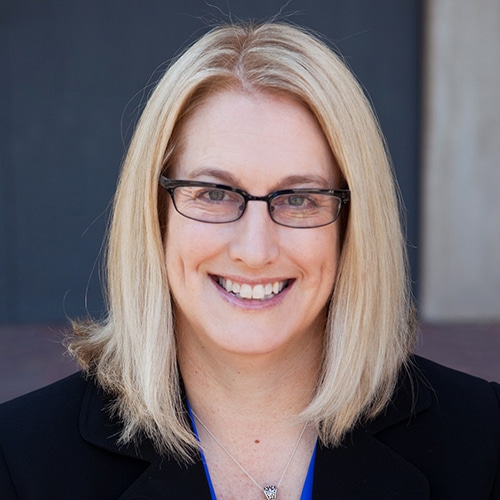Mary Juetten checks in with leaders and entrepreneurs working to solve the access to justice problem. This time: Wayne Hassay of Maguire Schneider Hassay discusses his firm’s focus on providing more affordable legal services through participation in LegalShield.
Getting to Know Wayne Hassay
I met Wayne Hassay, managing partner of Maguire Schneider Hassay (MSH), when he presented at Elevate by LegalShield. Hassay, who was licensed in 1991, signed on as an associate with MSH, a midsize law firm in Columbus, Ohio, in 1998. Now managing partner, his stated mission is to bring innovation and a technology focus to the practice, including using technology to broaden access to justice. To that end, he works closely with group legal services plan LegalShield. (Learn more about group legal services plans from both the lawyer and consumer perspective at www.glsa.com.)
Describe your morning routine.
Out of bed and straight to work.
What’s your email strategy?
Return them all immediately, and that’s impossible.
What’s your best productivity habit?
Getting to the office first thing every(week)day
What’s your favorite productivity tool?
Speech recognition software.
What’s the one habit you wish you could kick?
Sweating the small stuff.
The toughest lesson you’ve learned?
You can’t do everything by yourself.
Attitude toward life?
It’s a long road, keep going.
Best advice you’ve ever received?
It’s a long road, keep going.
A Deeper Dive into MSH’s A2J Commitment
MSH, a firm of 23 attorneys, five paralegals and 19 other professionals in Columbus, is a statewide practice. Its clients include state government, real estate agencies and small businesses. Hassay is often a passionate spokesperson for access to justice through technology and has written numerous articles on the topic.
How do you define access to justice?
Access to the law and lawyers for everyone — rich, poor and everyone in between. The access should be easily tapped, affordable and provide quality answers to legal questions so that people can plot the best course possible for themselves and their family.
Tell us about your connection to access to justice.
My whole career I have worked in small law firms that cater to the everyday legal problems of, as I say, everyday people. I have seen firsthand the struggle to hire a lawyer. It must change.
How are you addressing access to justice for your clients?
For 20 years now I have worked at Maguire Schneider Hassay. During that entire time, we have had the luxury of being participating lawyers in the legal services plan LegalShield. My law firm consults with nearly 300 clients a day about their day-to-day legal issues. There is no doubt in my mind that is creating access to justice.
What have you had to change at MSH based on feedback?
Changing your mindset from traditional small law firm, hourly rate and all bespoke services to a more affordable and efficient model is exceedingly difficult.
How are you growing MSH?
The focus is on law firm reinvestment. A pitfall of small and solo firms has always been the inability or unwillingness to reinvest. This is a vicious cycle. Firms blow out profits every year to partners. This creates the same scramble as the prior year, seeking more clients one at a time or with costly advertising. I am convinced that a wise reinvestment model will feed on itself. This is not some novel concept. It is how business is generally done, but it has rarely been how the law business is done.
Where does funding come from?
Steady income from high-volume, affordable legal services is the fuel for growth.
What role does technology play in A2J?
Technology is critical. Lawyers, as a profession, have been horrible at fostering access to justice. The business of law seems to be set up to be inefficient and unaffordable. But it is not all the profession’s fault. Scaling legal services before modern technology was very much impossible. Technology will create wider access to justice.
Do you see the “digital divide” as an issue?
Yes. The technology necessary to create this wider access to justice must be massive and, therefore, is very expensive. Solo lawyers, bar associations and the public at large are all on the same side of the divide — unable to tap into the technology to create full potential for everyone.
Do you see client knowledge of legal issues (or the education gap) as an issue?
Yes. Legal services are unaffordable. Thus, consumers cannot effectively ask lawyers important questions and get meaningful answers. And by this, I mean something so much more than the proverbial “free consultation,” which, because nothing is free, provides really, nothing.
Historically, once again because of the lack of modern technology, lawyers were the only source of legal information. This caused lawyers to cling to their esoteric knowledge of the law and made them think this was the value of what they do. Law, however, will soon be completely open source. Then the public can educate itself. Once they do they will seek out the true value from a lawyer — trust, advocacy, judgment and duty. Closing this education gap will widen access to justice.
What is your best tip for supporting access to justice?
Embrace legal services plans. Good for lawyers, good for the public.
Where is the A2J movement going?
It will grow exponentially in the coming years, improving the lives of all those who participate.
Where are you going?
I hope it is said that I, in some small way, contributed to the movement.
















